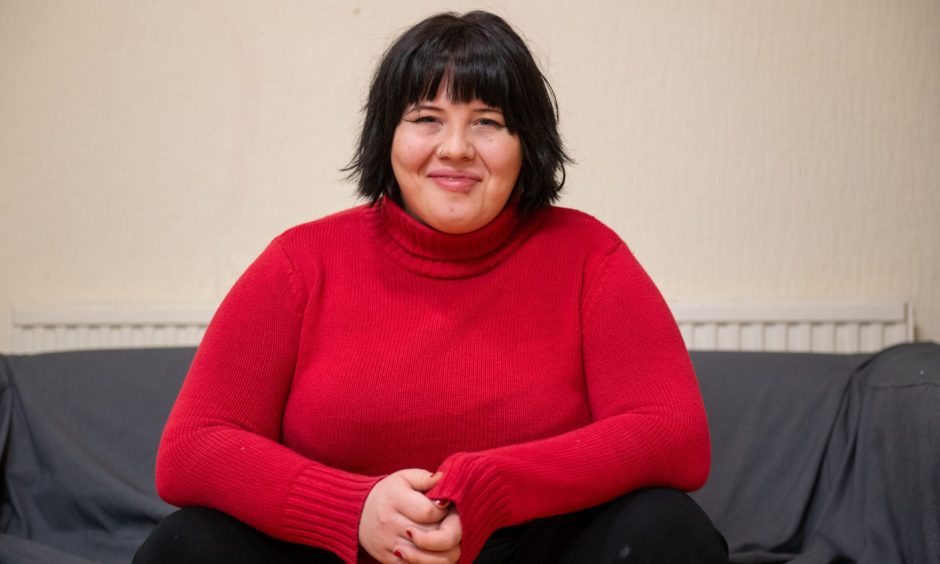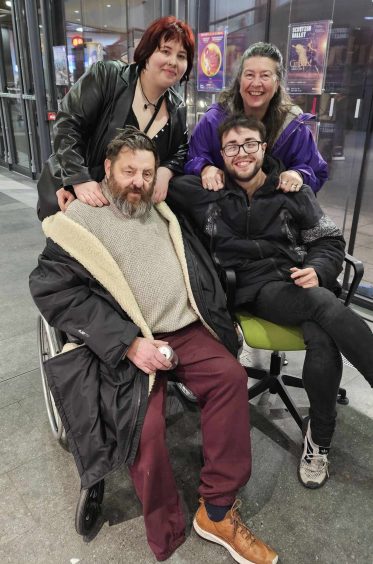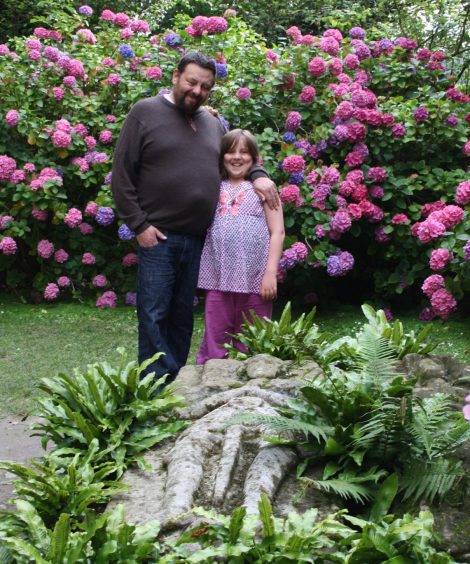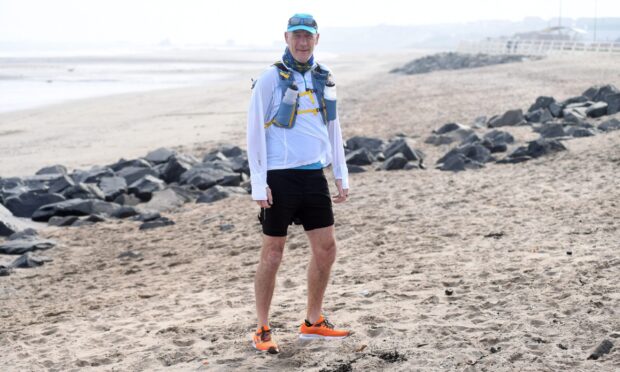
When 14-year-old Francesca Taylor-Coleman’s father was diagnosed with dementia she was terrified he would soon forget her and die.
She was so traumatised and ill-informed about the condition that she attempted suicide and ended up in hospital.
Fast forward six years, Francesca and dad Ron Coleman, 58, work together in campaigning for those with the condition and their kin.
Ron has made a new life writing poetry, plays, music and books.
Francesca, an artist who lives in Dundee, wishes she knew at the outset what she knows now and wants to make sure children of those with dementia are better supported.
She said: “The main perception of dementia is that the deterioration is quick and that’s not the case.
“It’s not the end of the world if your parent is diagnosed and you can still have a great relationship with them.”
Francesca and Ron, who is originally from Dundee but now lives on the Isle of Lewis, will make a joke of it when he forgets something and they enjoy long chats and their shared love of the arts.
But it has been a long and difficult journey for Francesca, a Dundee and Angus College theatre graduate, to reach the place of acceptance and knowledge she is at now.
Dementia is most common among those over the age of 65 but it can develop earlier as it did with Ron when he was 53.
Common symptoms in the early stages include difficulties with short-term memory, language, spatial awareness, planning and concentration.
It was Francesca who spotted changes in her father, and told her mum Karen Taylor.
She said: “I noticed that he was doing weird things, like leaving the cooker on and being very forgetful.”
With Ron’s diagnosis the family had to adapt their routine to ensure his safety and wellbeing. He has recently also had a leg amputated due to a wound which turned gangrenous.
Switching off appliances
Francesca said: “I would make sure to go around and check appliances were off and try to make him feel that he had as much autonomy as possible.”
But while Ron was under the watchful eye of healthcare professionals, Francesca felt alone in her turmoil.
She said: “I was only 14 when my dad was diagnosed and I didn’t know a lot about dementia, only what I saw on movies and television.
“So, I thought that very quickly my dad was going to forget about me.
“I remember being scared and terrified.
“I thought my dad would never walk me down the aisle and I wouldn’t have a future with him.
“When you are 14, that’s something that’s difficult to process and you have all that teenage angst going on as well.”
Francesca said she was given little information about the condition and although her school on the island was informed no support plan was put in place.
I felt I couldn’t go to my parents because they were dealing with it too… it was so overwhelming for a teenager.”
During class one teacher even asked Francesca to read aloud from a text depicting the late stages of dementia, causing her great distress.
Meanwhile, Francesca was also suffering from bullying and didn’t want to further burden her parents with her troubles.
She said: “I felt I couldn’t go to my parents because they were dealing with it too.
“I couldn’t handle everything, it was so overwhelming for a teenager.”
That was when she ended up in hospital.
However, the breakdown was a turning point and she was eventually able to talk to her parents about how she felt and they gave her the support she needed.
Francesca is now well-informed about dementia and has a wide support network, partly through her parents’ work with Deepness Dementia Media, which Ron co-founded and chairs.
But as she spoke to other young people affected by dementia she realised that there is what she described as a systemic lack of support for children and young people in her position and a lack of awareness of the impact on them.
She has made a documentary about this – entitled Frankie Goes To Belfast – with friend Tiana Topping, who was also a child when her mother was diagnosed.
Francesca said: “When I was put in contact with her [Tiana] we started talking about our experiences and we learned that they were so similar in terms of having no support.”
In the video Tiana describes stepping up to care for her mum and little sister, being so tired she struggled with her schoolwork and teachers not understanding why she was late or absent.
Francesca said: “I think that schools in particular need to step up for kids who are carers or have a parent with dementia or a disability and have support for them.
“If they don’t that’s going to affect their education long term.”
She is also conducting research into the impact of dementia on children and is seeking interviewees who were teens when a parent was diagnosed with cognitive impairment.
Her family recently took a leading role in the Deepness Dementia Art Festival, which gave them the opportunity to reflect on their own journey and challenge misperceptions.
Francesca said: “It’s been six years now and he [her father] has gotten worse but not to the point where he has completely forgotten me.”
He still remembers about 50% of our conversations and I’ll take that 50%.”
Her father still has a “brilliant mind”, she said.
“It’s his short term memory that is affected and he is still doing a lot of work.
“Yes, he has dementia but he can still talk, he can still do all the things he does, it’s not the end of the line.”
She hopes to help people understand that dementia is not the quick downward spiral often depicted on television shows and films.
She said: “You don’t instantly get to the end point, that end point can take years and years to reach.
“I thought by this time I wouldn’t have my dad anymore but that’s not the case.
“My dad is extremely capable and I can talk to him about everything.
“He still remembers about 50% of our conversations and I’ll take that 50%.”
Volunteers who wish to take part in Francesca’s research on children and dementia can contact her by email through Age Scotland’s About Dementia project, which is supporting her work.












Conversation